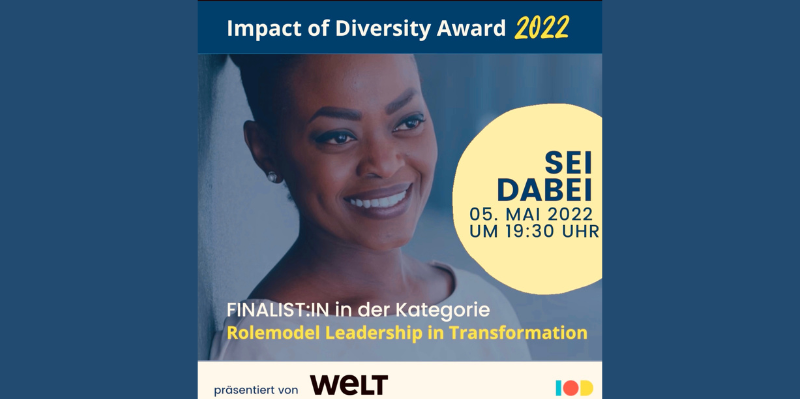The A.R.M.O.U.R of Leadership: A Sustainable Solution to the Future of the Workplace
One of the most significant sources of change in our world today is the digital transformation of the global economy. While the Covid-19 Pandemic brought about a highly uncertain outlook for the labor market, it accelerated the arrival of the future of work. Pandemic-related disruptions led to workplaces becoming more virtual than physical, economies, and workforces global, and AI applications increasingly taking on human jobs.
However, the changes we are globally witnessing are largely a product of the world’s Fourth Industrial Revolution, (4IR) which has seen industries disappear, some transformed, and others emerge. These implications affect everyone. Thus, it has become imperative to constantly remind all stakeholders – the public sector, private sector, and local communities – that we all have a role to play in creating sustainable, diverse, and inclusive organizations that empower the people in it.
This fact makes it more urgent to institutionalize human-centered approaches in both public and private organizations as key to building sustainable and inclusive organizations where humans remain empowered and valued.
As a response and solution to the changing industry, cultural and leadership landscape, I created a leadership model called: The A.R.M.O.U.R of Leadership. The A.R.M.O.U.R won a nomination in 2022 for The Impact of Diversity Awards in the Category: Leadership Transformation, making it to the Top 3 finalists in Germany.
This model builds upon six principles that offer a paradigm shift in sustainably shaping the future of organizations with a human-centered design, especially in a world where technological advancements are evolving at an unprecedented pace.
The six principles of The ARMOUR of Leadership:
- Authenticity
- Resilience
- Mastery
- Ownership
- Understand
- Respect
Upskilling and Reskilling: A Sustainable and Strategic Solution to the Widening Global Skills Gap
The global economy is characterized by one visible trend: The Widening Skills Gap.
Skills are one of the single most important resources in the business and economic sphere of human life. With the right skills, you are capable of engaging the local and global economy while expanding your capacity and the better and more relevant your skill is, the higher your market value and reward will be.
Due to the ongoing global shift in recent times, the concept of upskilling and reskilling has become a critical topic of discussions revolving around the future of work in efforts to combat the Widening Skills Gap.
So, why are these conversations around The Widening Skills Gap suddenly becoming so critical? The answer is simple; Digital Transformation.
Technology has changed the future of the workplace and leadership, creating new possibilities that can only be fully realized by transitioning the workplace to a hybrid and largely virtual work design.
According to Gartner Inc., physical work meetings will drop from 60% (as of 2019) to 25% by 2024, indicating a global shift towards remote and virtual working.
New business models are emerging as a result of technological advancements, disrupting industries while establishing a fully digitalized economy.
Consequently, employees must be upskilled and reskilled to ensure their value addition and effective deployment as the 4th Industrial Revolution continues to transform the workplace.
The Four Major Reasons Why Human-Centered Organisational Approaches Fail
A human-centered organisational approach puts people first as opposed to only prioritizing results and profit. It is a strategic imperative that emphasizes the place of people/employees in sustaining positive business outcomes.
Global leaders are beginning to realize that investing in employee well-being is a catalyst for increased profitability and sustained relevance in the digitalized global economy. Putting people at the heart of strategy has become even more imperative in the face of hybrid and virtual work.
When implemented right, a human-centered organisational approach influences every key aspect of the organisation, from leadership, decision-making, talent development and retention strategies, policies, processes, and the overall structure.
How To Maintain A Sustainable Competitive Advantage In A Changing World
Short-Termism and Its Negative Impact on Sustainable Human-Centered Organisational Cultures
Short-termism is a major obstacle to any organisation's ability to sustainably cultivate human-centered cultures that treat employees as valued individuals who are empowered, respected, and valued.
The unprecedented digital transformation, climate change, natural calamities, and economic inequality of the past two monumental years posed problems that demanded quick and agile solutions increasing short-termism in many organisations.
Although the focus of many organisations has shifted to approaches that revolve around human-centric values as a way of bringing the needs of their stakeholders and communities into a healthy balance, most still struggle to achieve impact.
This fact is often attributed to short-term performance pressures, excessive focus on quarterly earnings, and little to no attention paid to long-term strategy and the value it sustainably creates. Causing most organisations to struggle with the shift and alignment of their values with those of the leaders, workforce, customers, and communities.






